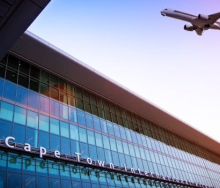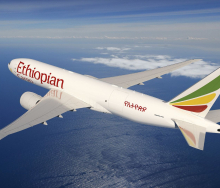A digital dichotomy exists among tourism industry leaders. The majority believe that technological innovation is crucial for business success post-COVID but they are still reluctant to invest stretched resources into digital transformation.
The 2022 Digital Transformation Report from Amazon Web Services (AWS) and Skift, which surveyed 951 senior-level travel and hospitality leaders in 12 markets across the world, found that 94% of industry leaders believe that digital transformation is important to their business. But 33% also said that running on outdated ‘legacy’ systems was their top concern for business disruption.
“An inability to innovate quickly and cost-effectively poses a significant challenge for travel and hospitality executives who want to use data and technology to reimagine the customer experience, improve marketing effectiveness, and reduce operational costs,” said Steven Elinson, AWS MD of Travel and Hospitality.
Elinson said tourism companies leading the way in digital transformation and interviewed for the report were “effectively using cloud-based software and infrastructure, data, and machine learning models to personalise customer interactions, provide more seamless customer service, reduce operational costs and waste, and improve revenue management”.
While Africa lags behind the rest of the world in harnessing new technologies, discussions surrounding the use of virtual reality (VR) and augmented reality (AR) – collectively known as the metaverse – and artificial intelligence (AI) are heating up. The topic was the basis for a panel discussion at the 2022 African Tourism and Leadership Conference in Gaborone on Wednesday, October 25.
The discussion saw pioneering African tourism tech companies sharing their thoughts on the under-exploited opportunity of “augmenting Africa’s tourism marketing by leveraging the metaverse in hospitality, travel and real estate”.
Constrained budgets
In less developed economies, such as those on the African continent, embattled tourism providers are reluctant to invest in technology, despite the long-term benefits.
“The travel industry is still licking its wounds from a horrific COVID experience and are finding it difficult to justify spending money on upgrading their platforms when they are still recovering from the salary cuts and retrenchment trauma inflicted on them,” says James Elstob, CEO of South African tourism technology solutions provider Go4ITAfrica.
“Tourism is also very much a face-to-face, people-centred industry where personal connection is important, and some view digitisation as a threat and even fear it.”
The metaverse, together with cloud computing and artificial intelligence, have been universally recognised as highly effective tourism marketing tools. But many marketing teams are not equipped for the digital conversion, according to Jacques Clarijs, the South African partner of leading VR tourism marketing agency, Gecko Digital, which recently entered the southern African market.
“Very few companies have a digital transformation plan or team set up to manage this and we see it clearly in the uptake of High Definition 360° Panoramic VR technology. Some companies get it and understand the disruptive elements of it and how it drives the future of digital transformation in marketing. Others see it merely as a marketing budget line, and by the time that budget is spent the industry has already moved on,” Clarijs says.
Benefits outweigh costs?
Both Elstob and Clarijs say that harnessing AI gives businesses unprecedented power to effectively reach target audiences.
“If a prospective Japanese traveller goes onto a South African OTA and searches for a safari, then the results should render completely differently from what is shown to a local traveller. AI allows us to be proactive and intelligent when people are searching for information, unlike traditional OTAs where the client needs to understand exactly what they want,” says Elstob, who is developing innovative new online booking platforms based on AI.
“Pricing and availability on demand through AI and machine learning allow for a better yield and conversion rate in bookings, with minimal human intervention or management,” says Clarijs.
Gecko Digital and new sister company igoroom are set to launch the world’s first fully immersive virtual reality travel agency, utilising AI and machine learning, with the assistance of AWS.
“We are able to see and learn what our customers are looking at in VR, and adjust the way that content is displayed to the next customer in that region. It gives us the ability to direct clients and drive the marketing to fit the customer's expectations, in turn converting lookers into bookers,” Clarijs says.














